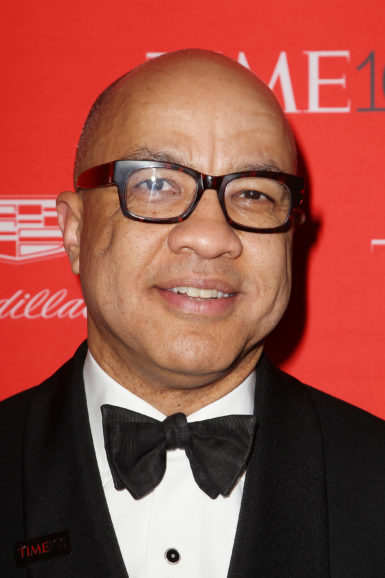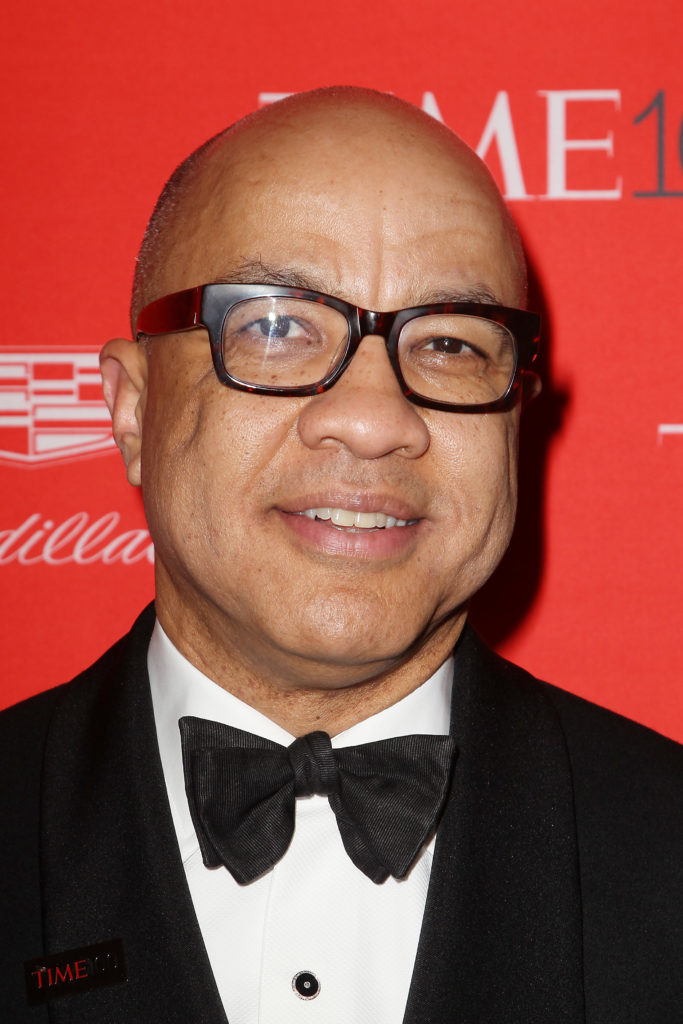[ad_1]

Darren Walker.
KRISTINA BUMPHREY/STARPIX/SHUTTERSTOCK
On Friday, activists from No New Jails, Decolonize This Place, and other activist groups assembled in front of the Ford Foundation in New York for a protest. Their action was in response to an essay published earlier this month by the foundation’s president, Darren Walker, in which he wrote in favor of a plan to move inmates at the Rikers jail in New York into four detention centers, writing, “we cannot let the perfect be the enemy of progress.” (The piece was a larger meditation on nuance in public debate.)
The activists argue that, in advocating for this, Walker—who has been known for supporting social justice–minded art, much of it by artists of color—was coming out in favor of measures that would lead to the creation of new jails and the expansion of mass incarceration. The activist and scholar Angela Y. Davis said earlier last week that protests like Friday’s were necessary “if we want to continue to make abolitionist ideas available to masses of people in this country,” and more than 250 Ford Foundation fellows signed an open letter in which they encouraged Walker to rethink his views.
A representative for the Ford Foundation referred ARTnews to a follow-up essay, in which Walker said, “I am deeply grateful to activists in the movement—including activists in the abolition and criminal justice reform movements—for all they have done to accelerate an end to mass incarceration. In the context of my reflection on the destruction of nuance in our public discourse, I do want to clarify that, in order for our common goal of decarceration to be realized in New York City and our nation, we must come together in dialogue and work together where possible.”
Artists have long been integral to the Ford Foundation’s vision, and last week, following the protest, ARTnews reached out to some participating in a show now on view at the Ford Foundation Gallery, “Utopian Imagination,” which focuses on how contemporary artists are representing ideal worlds and communities. Some artists in that show and others staged at the recently-opened art space, including Morehshin Allahyari and Lina Puerta, signed the open letter circulating last week that was addressed to Walker; others were still mulling their viewpoints. All acknowledged the difficulty of the situation.
Jaishri Abichandani, an artist who served as the consulting curator for “Utopian Imagination” and other shows at the Ford Foundation, said that she had forwarded the open letter to about 25 artists who had shown in the gallery. “As you can imagine, we are disappointed and taken aback, just coming to grips with what’s happening,” she said in an email. “It’s a truly unfortunate situation because this is a new space under the umbrella of Social Justice—it is the idea of Social Justice attached to art that made this a unique opportunity for all of us. But I have come to learn that capitalism compromises us all.”
Some artists said that Walker’s writing has been insightful in some ways and problematic in others. “Simply shutting down prisons is probably not going to happen. Darren Walker probably understands this well,” Saks Afridi, an artist in “Utopian Imagination,” said in an email. “I can’t imagine it was easy for him to break down the ‘nuances.’ But having read his op-ed, I can see his points too.”
Other artists took a harder line. In an emailed statement, Cannupa Hanska Luger, an artist in the show, said that he stood with No New Jails and the other activists. “The president of Ford’s words are concerning,” Luger, a member of the Mandan, Hidatsa, and Arikara nation, told ARTnews. “As an Indigenous artist, I stand by my work, and will not defend a powerful and wealthy institution. The Ford Foundation needs to contend with its positions and be accountable for the words and actions of its staff if they want to continue to work with BIPOC, which they say they aim to support.”
Correction 9/30/19, 8:15 a.m.: An earlier version of this article misspelled Saks Afridi’s last name. It is Afridi, not Abidi. The post has been updated to reflect this.
[ad_2]
Source link

